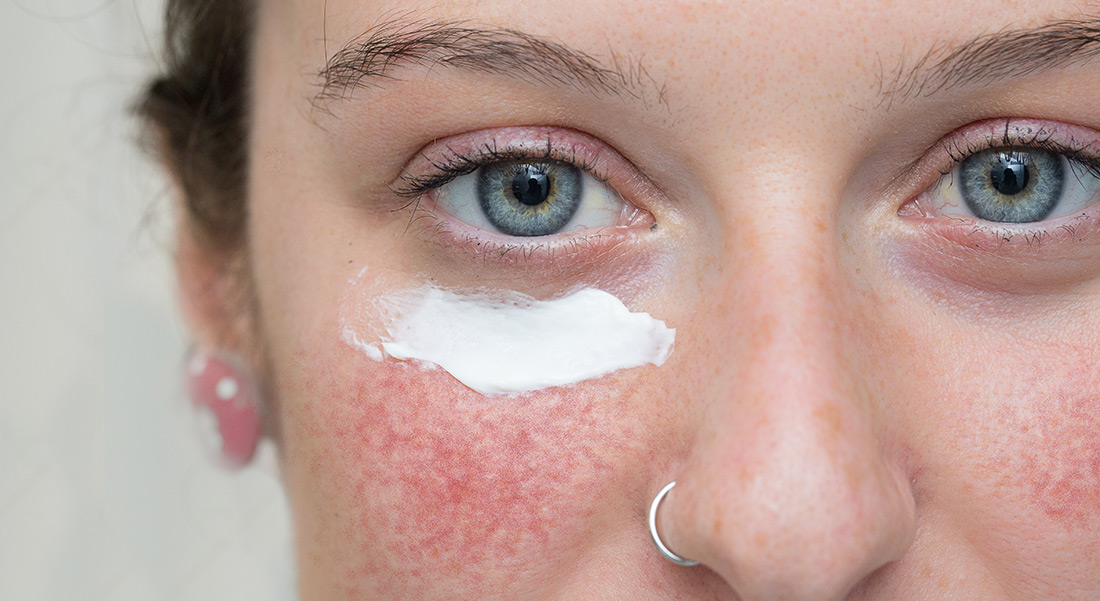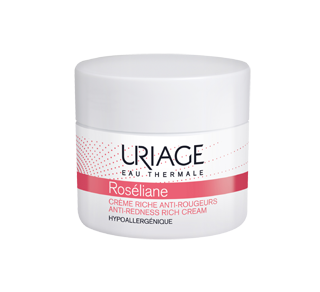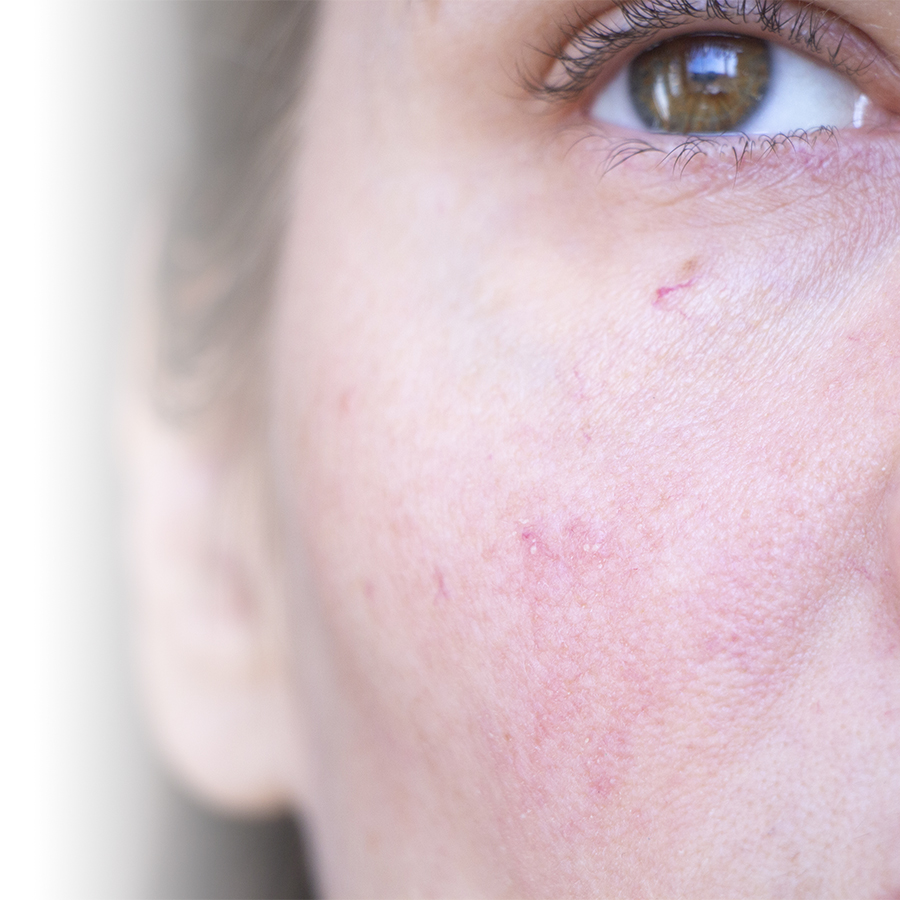During winter, the cold weather can act as a trigger for rosacea, even for people who don’t generally suffer from it. Read on to learn more about this skin condition and steps you can take to alleviate the symptoms.
What is rosacea?
Rosacea usually appears on the cheeks, nose, forehead and chin, and is characterized by a burning sensation, flushing or stinging, as well as redness in the affected areas. This redness is caused by the dilation of small blood vessels (called telangiectasia) that, over time, lose their elasticity.
Between 3% and 10% of the population suffers from rosacea, especially those with pale skin and light complexions. However, several factors can contribute to flare-ups among all adults, and more rarely among children.
Risk factors:
- Spicy foods, alcohol, tobacco, and very hot meals
- Extreme temperature fluctuations (in winter)
- UV rays
- Stress
- Pregnancy
Healthy habits to adopt
Moisturize your skin
Moisturizing your skin is a vital step in combating rosacea. Poorly hydrated skin is prone to redness, red spots or worsening of unpleasant rosacea symptoms.
Some cosmetic brands offer a skin care line for people suffering from rosacea. These cosmetic creams contain active ingredients that help to stimulate microcirculation and reduce the appearance of redness.

Protect yourself from the sun and cold
We can’t stress this enough: protecting your skin from the cold is essential if you don’t want to worsen or cause the appearance of redness due to rosacea. Evenly apply sunscreen with a high protection factor (minimum SPF 30) at least 30 minutes before going outside, and avoid exposing yourself to the sun between noon and 3:00 p.m.


